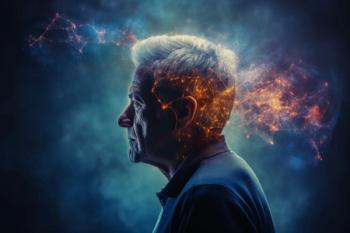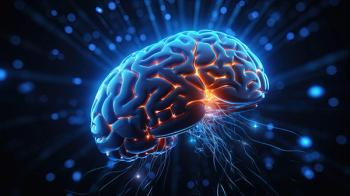
New data reveals Caplyta significantly improves remission rates in adults with major depressive disorder, offering hope for lasting relief from symptoms.

New data reveals Caplyta significantly improves remission rates in adults with major depressive disorder, offering hope for lasting relief from symptoms.

Centanafadine demonstrates promising effects on ADHD symptoms, enhancing key neurotransmitters without increasing psychomotor activity, according to poster data.

Axsome Therapeutics begins a pivotal trial for AXS-14, aiming to improve fibromyalgia management and address significant patient needs.

Innovative combinations of transcranial magnetic stimulation and ketamine therapy offer new hope for treatment-resistant depression, pain, and substance use disorders.

A clinician shares her journey as a 3-time suicide survivor, advocating for vulnerability and compassion in mental health care.

New data reveals valbenazine (Ingrezza) shows significantly higher VMAT2 target occupancy than deutetrabenazine (Austedo XR).

Psychiatrists explore the mental health impacts of protests, emphasizing the need for community support and ethical responsibility in turbulent times.

Explore groundbreaking insights from the 2025 Southern Florida Psychiatry Conference, covering VNS for depression, stuttering management, and postpartum care.

Explore the transformative impact of artificial intelligence on modern life, from health care advancements to productivity enhancements and ethical considerations.

Scienture's Rezenopy, the highest-dose naloxone nasal spray approved by the FDA, gains patent protection.

FDA removes suicidal ideation warnings from GLP-1 RA medications, highlighting their potential benefits in weight loss and mental health treatment.

"I’m idling on the parking garage roof..."

Exploring the complex legacy of Oliver Sacks, this article examines the blurred lines between truth and fiction in his case studies.

Experts discuss the rapid evolution of chatbots, their impact on humanity, and the future of psychotherapy in a transformative technological era.

Cassava Sciences shares insights from phase 3 trials of simufilam for Alzheimer disease, revealing potential treatment differences despite unmet primary endpoints.

FDA approves ProlivRx, a groundbreaking at-home therapy for major depressive disorder, offering new hope for patients unresponsive to traditional treatments.

Explore the unique mood-stabilizing properties of antiepileptics like lamotrigine, valproic acid, and carbamazepine in bipolar disorder treatment.

Research reveals that reducing anticholinergic burden can significantly enhance cognitive function in patients with psychosis, offering new treatment insights.

Explore the complex relationship between gender, sexual health, and mental health with insights from expert Eugene T. Lucas Jr, DNP, CRNP, FNP-BC, APMHNP-BC.

Explore the diverse legacies of influential psychiatrists who shaped mental health, from poetry to cooking, highlighting their profound impact on society.

Lipocine's LPCN 1154 shows promise in treating postpartum depression, with a strong safety profile and potential for rapid relief in outpatient settings.

Explore the complexities of personality disorders in correctional settings and discover effective treatment strategies for better mental health outcomes.

Emergency departments face challenges in detecting suicidality among trauma patients, highlighting the need for effective screening and intervention strategies.

Explore the evolving language of mental health as it intersects with societal issues, highlighting the importance of the term "upstander" in psychiatry.

Explore the intersection of cultural trauma and mental health, emphasizing the importance of awareness and education in preventing future conflicts.

A clinical trial reveals challenges in assessing schizophrenia symptoms due to cultural and language differences, highlighting the need for improved measurement tools.

Psychiatric Times is excited to embrace change with new digital editions and engaging content, and invite you, our readers, to explore diverse topics across multiple platforms.

Reviva Pharmaceuticals reveals promising clinical trial data on brilaroxazine, highlighting its potential to treat negative symptoms in schizophrenia.

Explore the complex relationship between epilepsy and psychosis, including forced normalization and treatment strategies for affected patients.

Athletes navigate stress as a performance factor, learning to harness it for optimal results through effective management strategies and support systems.